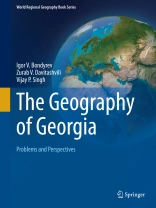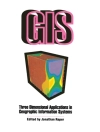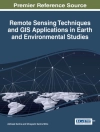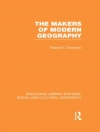This book discusses the political and economic history and geography of Georgia, the problems it has faced, and how it has overcome and is still overcoming them. In most countries, at the end of the 20th century the successful resolution of social-economic, political, demographic and ecological problems was largely dependent on effectively protecting the population and economic assets from natural disasters and on ensuring conditions for their sustainable development. These problems are most acute in mountainous regions like Georgia, where the unplanned development of natural ecosystems has had drastic consequences. It is therefore necessary to understand not only the probability of changing conditions (natural as well as political and demographic), but also the probability of the resulting economic losses.
The book is divided into four sections; historical and political geography, geological processes, ecological processes and developmental geography. In the historical and political geography section the authors present a detailed discussion on ancient history, historical and political geography, ethnic groups and religions, demographics and socio-cultural geography. The geological processes section contains information on geology, geodynamical processes, glacial and periglacial processes. The ecological processes section examines a variety of landscapes and ecosystems, aspects of deforestation, reforestation and desertification along with anthropogenic impacts on the environment. The developmental geography section looks at different economies, natural resources, sustainable development and climate change.
Spis treści
Introduction.- Section 1: Historical and Political Geography.- Ancient History.- Historical and Political Geography.- Ethnic Groups and Religions.- Demographics.- Sociocultural Geography.- Section 2: Geological Processes.- Geology.- Geodynamical Processes.- Glacial and Periglacial Processes.- Section 3: Ecological Processes.- Landscapes.- Deforestation and Reforestation.- Desertification.- Ecosystems.- Anthropogenic Impact on Environment.-Section 4: Developmental Geography.- Economical History.- Economics.- Natural Resources.- Sustainable Development.- Global Warming and Climate Change.-Law and Government.
O autorze
Igor. Bondyrev – 28.09.1948 was born in Tbilisi, Georgia. In 1967, after graduating from high school, he studied at the Moscow school mapping (Russia). 1967-1971 – student of the Faculty of geography the Tbilisi Pedagogical Institute. 1972-1975 – the post-graduate student of the Vakhushti Bagrationi Institute of geography – specialize “physical geography”. In 1976 he defended his thesis 'Per glacial landscapes of Georgia’, in 1991 – his doctoral thesis 'Geomorphology of Mozambique’. After graduation, he worked as a teacher of geography at the University of Georgia. In 1978 to work in the system of the Department of geology of Georgia, working his way from Engineering Geologist to the head of the geological party, then – head of the information service of Department. Conducted research in practically all the regions of Georgia, as well as Azerbaijan, Turkey, South-East Africa, Syria, Russia (Altai, far East, North Caucasus), Ukraine, Kazakhstan and others.
Zurab Davitashvili (born 1953) – PH.D. in Geography (1982), Doctor of Political Sciences (2002) is Full Professor of International Relations and Human Geography, Head of Department of International Relations of Ivane Javakhishvili Tbilisi State University (Georgia). Prof. Dr. Davitashvili is author of more than 70 scientific articles and 5 monographs, among them “Nationalism and Globalization”, “Historical and Political Geography of the World” and Textbook for secondary schools “Geography of Georgia” (with N. Beruchashvili and N. Elizbarashvili).
Professor Vijay P. Singh, Ph.D., D.Sc., P.E., P.H., Hon. D.WRE, is a University Distinguished Professor and Caroline and William N. Lehrer Distinguished Chair in Water Engineering at Texas A&M University. Professor Singh has been recognized for four decades of leadership in research, teaching and service to the hydrologic and water resources engineering profession. He has published his research in more than 710 refereedjournal articles, 300 conference proceedings papers, 80 book chapters, and 70 technical reports. He has authored or co-authored 21 books and has edited another fifty five reference books. He has been the recipient of 65 national/international awards from professional organizations. He is a recipient of the Arid Land Hydraulic Engineering Award, Ven Te Chow Award, Torrens Award, Norma Medal, and Lifetime Achievement Award all given by ASCE; and Ray K. Linsley Award and the Founders Award given by the American Institute of Hydrology. He has been awarded two honorary doctorates one by University of Waterloo, Canada; and the other by the University of Basilicata, Italy. He is a fellow of ASCE, EWRI, AWRA, IE, ISAE, IWRS, IASWC, and IAH; a member of AGU, IAHR, IAHS and WASER. He is member/fellow of 10 engineering/science academies.












